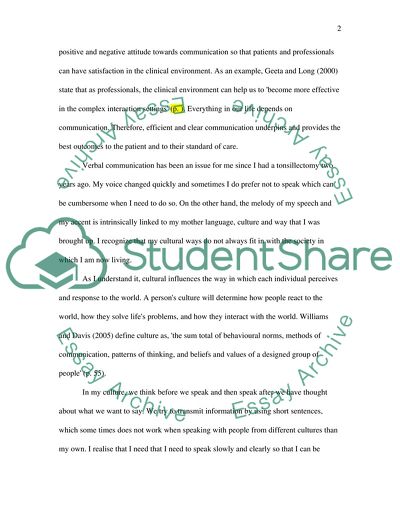Verbal Communication Skills Essay Example | Topics and Well Written Essays - 1500 words. https://studentshare.org/journalism-communication/1732033-verbal-communication-a-specific-area
Verbal Communication Skills Essay Example | Topics and Well Written Essays - 1500 Words. https://studentshare.org/journalism-communication/1732033-verbal-communication-a-specific-area.


